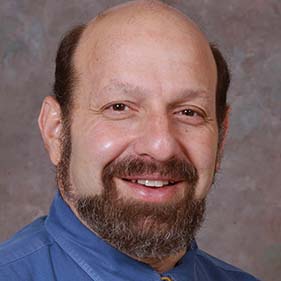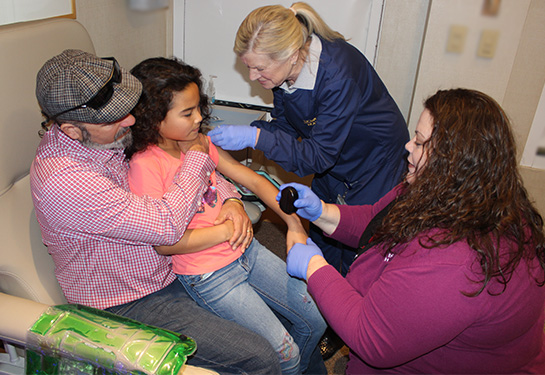Pfizer’s new COVID antiviral pill Paxlovid now available for limited use
Treatment shown to be highly effective against Omicron, now being used by UC Davis Health in at-risk patients
Pfizer’s COVID-19 treatment pill Paxlovid is now being used at UC Davis Medical Center and outpatient clinics to protect patients from the most severe effects of COVID-19.
Supplies of the drug are extremely limited and are currently only being used to treat the most at-risk patients. However, UC Davis Health expects it to be more widely available in the community soon.
Paxlovid is viewed as a major step forward in the fight against the virus, with trials showing that it reduced the risk of hospitalization or death by 89 percent in high-risk patients. Last month, the Food and Drug Administration granted emergency use authorization of Paxlovid in people at high risk of severe COVID-19. Medical experts say the pill is a valuable treatment option because unlike other available therapies, people who are newly infected can easily take it at home.
The pills are distributed through the UC Davis Pavilion Pharmacy; plans include making them available through the Ambulatory Care Center and Cypress pharmacies in the next couple of weeks. UC Davis Health is one of a few designated academic medical centers in California to receive Paxlovid.
It [Paxlovid] allows us to treat high risk patients and keep them at home for their treatment.”—Timothy W. Cutler
‘Game changer’
Timothy W. Cutler, assistant chief of pharmacy for ambulatory clinical services, describes Paxlovid as a potential “game changer.”
“It allows us to treat high risk patients and keep them at home for their treatment. The new therapy will reduce the impact on the hospital and infusion center and allow treatment to occur where patients are most comfortable,” he said.
Cutler noted that the best opportunity to prevent hospitalization and death from COVID is still to be fully vaccinated.
Other treatment options include monoclonal antibodies and antivirals that help the immune system fight the infection or fight the COVID virus.
The problem, he said, is that those other treatments are all infusions that need to be given in an infusion center or hospital, whereas Paxlovid is a pill picked up at a pharmacy and taken at home. Another issue with monoclonal antibodies is that new variants can be resistant to them, and Omicron is highly resistant to previous therapies used to treat Delta, Cutler added.
“The biggest challenge right now is that we have very limited supplies of Paxlovid at this time,” Cutler said.
The new oral antivirals are being reserved for UC Davis Health’s highest risk patients.
“This includes patients with a compromised immune system, older age, and those with chronic illnesses that may put them at risk for hospitalization. We use a scoring system that was developed by the National Institutes of Health that outlines these risk factors to determine which patients are at the highest risk,” Cutler said.
Paxlovid is not for every patient, Cutler added. There are upwards of 30 or more drugs that interact significantly with the new Paxlovid therapy.
“This is not always a contraindication, but some cannot be safely combined with this new therapy,” he said. “At a minimum, a rigorous medication history and review by the prescriber and pharmacist is important prior to starting this therapy. In addition, low-risk vaccinated patients would not likely need this therapy. Patients with severe kidney or liver disease should not get this therapy. Last but not least, this is only for patients 12 and over.”
We’re pleased to have another medical treatment that may help to keep people alive, and out of the hospital, as we all work through this latest wave of infections.”—Stuart Cohen
Designated medical center
“Because we continue to see a high percentage of patients in the hospital who aren’t vaccinated, we hope these additional medications will help keep more people out of the hospital,” said Stuart Cohen, chief of infectious diseases at UC Davis Health. “We’re pleased to have another medical treatment that may help to keep people alive, and out of the hospital, as we all work through this latest wave of infections.”
For much of the pandemic, UC Davis Health has been treating high-risk patients with infusions of different monoclonal antibodies, bamlanivimab and sotrovimab. These are also in limited supply, and UC Davis Medical Center is one of the few designated sites for patients to receive these medications. The health system is working with the California Department of Public Health to set up another clinic for distribution should these medications become more available.






